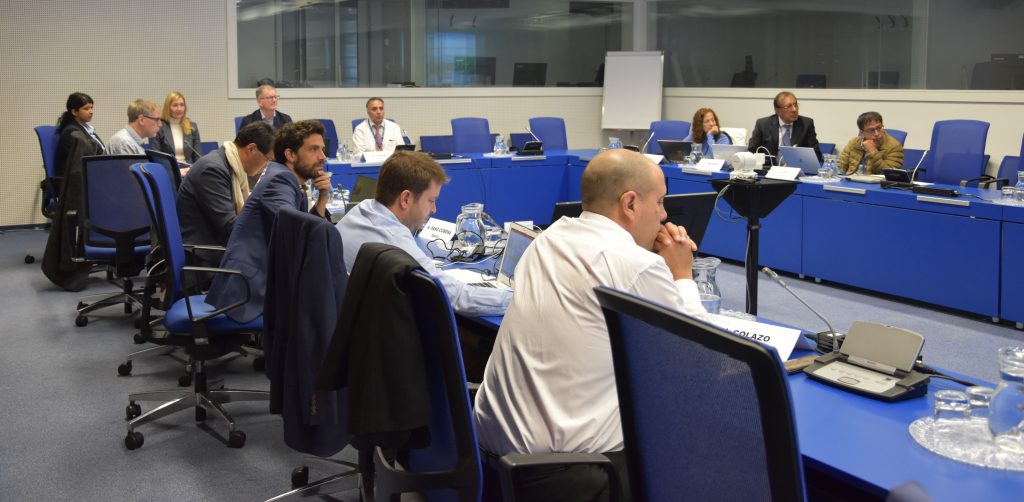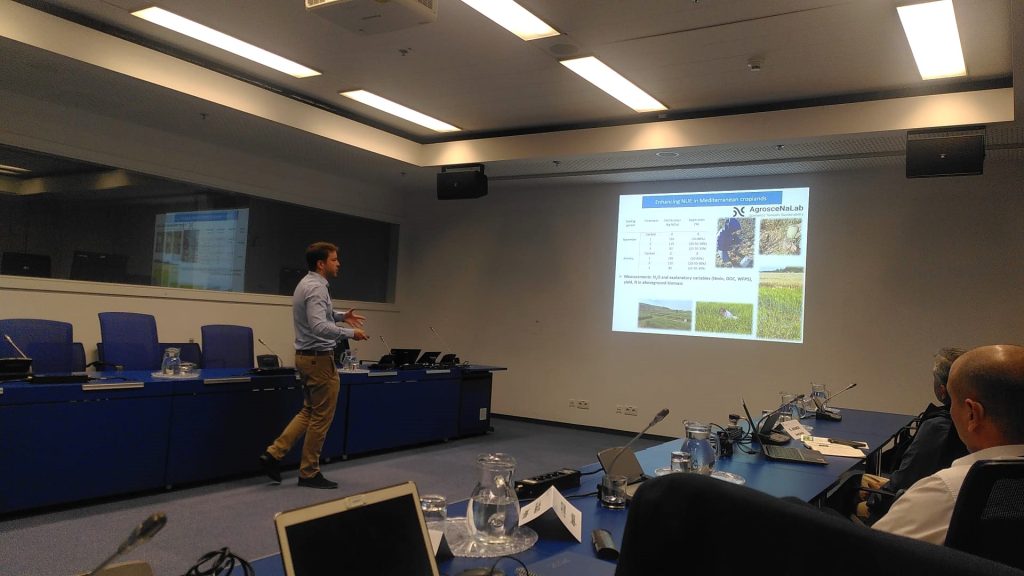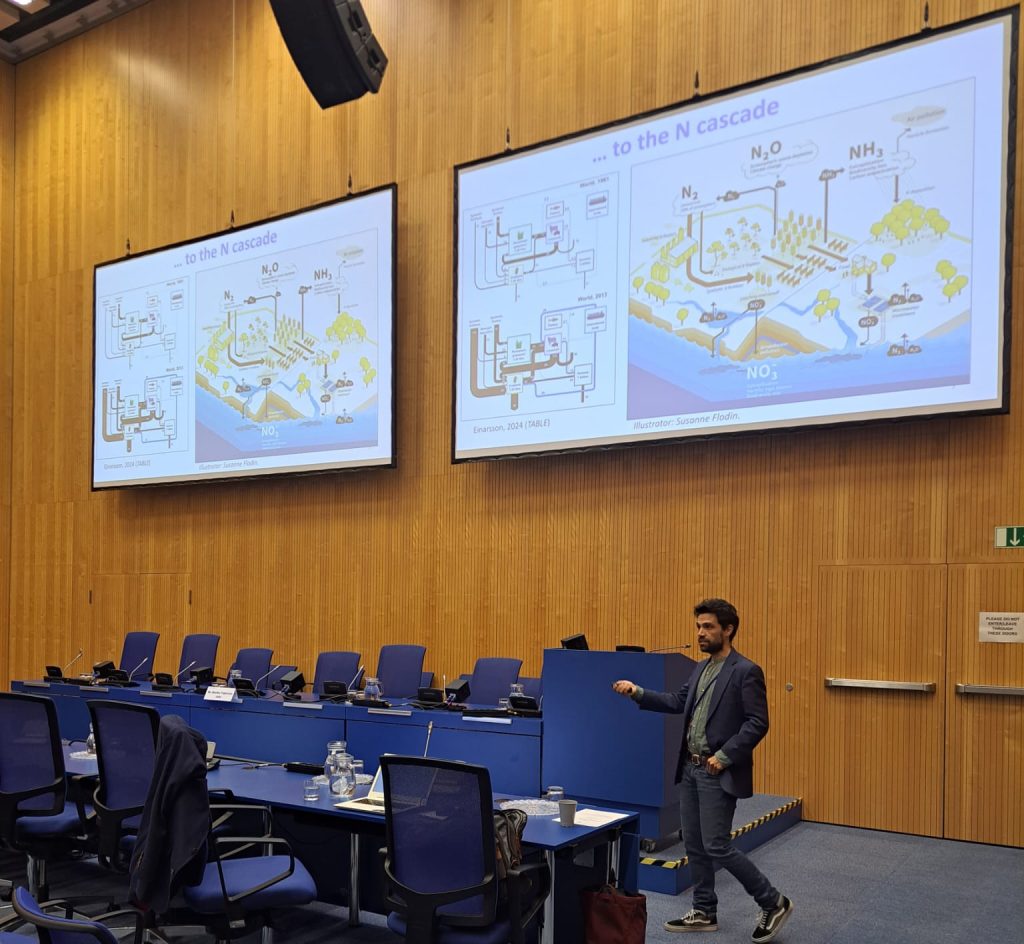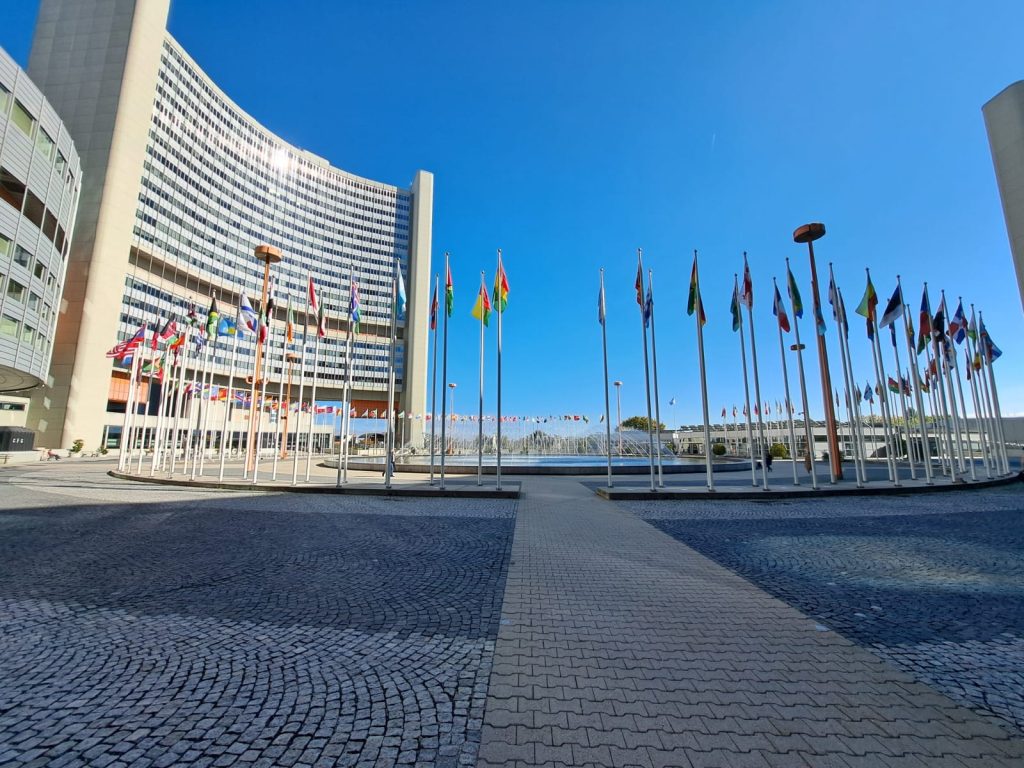

The Research Group on Contamination of Agroecosystems by Agricultural Practices (COAPA), through ETSIAAB professors and CEIGRAM researchers Alberto Sanz Cobeña and Guillermo Guardia, participated this week in Vienna (Austria) in the Second Coordination Meeting of the coordinated research project of the International Atomic Energy Agency (IAEA-FAO) on the Development of Climate-Smart Agricultural Practices for Greenhouse Gas Mitigation. These activities are coordinated by the IAEA’s Soil and Water Management and Crop Nutrition Unit.
This International Agency promotes and encourages research and development of practical applications of atomic energy for peaceful purposes worldwide. Within this framework, members of CEIGRAM and the COAPA Research Group have been collaborating with the IAEA for more than a decade in various projects focused on increasing knowledge in third countries, especially developing countries, on the development of climate-smart agricultural practices based on a robust and effective quantification of these emissions that lead to the mitigation of Greenhouse Gases (GHG) and increase carbon sequestration in agricultural soils. The following countries are participating in this coordinated research project: Germany, Spain, New Zealand, Costa Rica, Ethiopia, Brazil, Bangladesh, China, Peru, Argentina, Pakistan and Vietnam.
Food and feed production and consumption contributes to about one-third of total direct and indirect global GHG emissions. To mitigate emissions of these GHGs (nitrous oxide (N2O), methane (CH4) and carbon dioxide (CO2)) directly from crop and livestock systems, and to optimize atmospheric CO2 capture through carbon (C) sequestration, there is an urgent need to develop and validate climate-smart agricultural practices focused on, for example, the use of improved fertilizers, the use of more efficient irrigation systems and the use of legumes in crop rotations.


During the Coordination Meeting, Guillermo Guardia presented the results of the COAPA group in relation to the quantification and mitigation of N2O emissions and increased N use efficiency (NUE), using fertilizers enriched in the stable isotope N15 and other tools (analysis of microbial communities, vegetation indices, automatic cameras…).
Also present was Alberto Sanz-Cobeña, who presented the results of the COAPA group in collaboration with other CEIGRAM (AGSystems) and international research groups in relation to the quantification and mitigation of volatilized NH3 ammonia and reactive N both in field trials and at regional scale (modelling, inventories and scenarios). Different mitigation strategies are proposed based on technological or structural measures, including changes in diet or the reconnection of agricultural and livestock production.
Through participation in meetings such as this one, the COAPA Group and CEIGRAM reaffirm their commitment to finding practical solutions to help mitigate the impact of climate change and reactive N pollution in agriculture. Collaboration with IAEA-FAO, as well as with other international, governmental and other research actors, has been key to advancing the development of practices that reduce GHG emissions and also promote carbon sequestration in agricultural soils. These efforts, which are the result of collaborative work, are fundamental to face the global challenges related to environmental sustainability and food security, showing how scientific research, and its correct transfer to the actors involved, can benefit the agricultural sector, with the objective of advancing towards a horizon of global sustainability.

